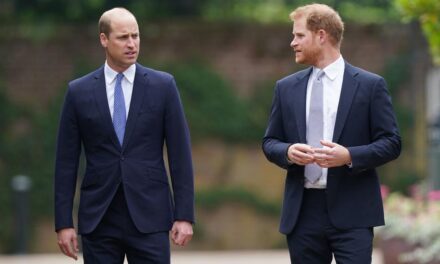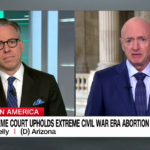
Jack Dorsey Expected to Step Down as C.E.O. of Twitter

The social media pioneer, whose name has become synonymous with the company, was replaced by Twitter’s chief technology officer, Parag Agrawal.

SAN FRANCISCO — Jack Dorsey stepped down on Monday as chief executive of Twitter, the social media site he co-founded in 2006 and guided through the tumultuous years of the Trump administration and increasing calls for regulation from lawmakers around the world..
He was replaced by Parag Agrawal, the company’s current chief technology officer who has recently been working on technologies associated with cryptocurrencies, which have become a fascination of the tech industry’s power brokers, including Mr. Dorsey.
Mr. Dorsey’s exit marks a significant shift at the company, which has navigated years of pressure from investors who thought it did not make enough money and criticism from Washington, particularly Republican lawmakers who complained Twitter has helped stifle conservative voices in social media.
The most prominent of those voices was that of former President Donald J. Trump, who used his Twitter feed to threaten enemies and keep his allies in line. Twitter banned Mr. Trump shortly after the Jan. 6 attack on the Capitol.
Mr. Dorsey, 45, who is also the chief executive of the payments company Square, was fired from the top job at Twitter in 2008 but returned in 2015. Mr. Dorsey’s plans were first reported by CNBC. A Twitter spokeswoman declined to comment beyond the announcement.
His departure represents the second significant recent shake up at a major social media company. Last month, Facebook rebranded itself as Meta. The change was accompanied by a new corporate logo and an emphasis on a virtual world called the metaverse, but Mark Zuckerberg, its high-profile chief executive, will still run the company.
The departure of Mr. Dorsey, who was associated with Twitter from its earliest days, is a critical changing of the guard for the company. While Twitter is nowhere near as large, Mr. Dorsey’s name has been as closely associated with Twitter as Mr. Zuckerberg’s has been with Facebook. He has become a celebrity outside of Silicon Valley, parodied on “Saturday Night Live” and needled on his own social media platform for his long facial hair and personal wellness pursuits.
“If you stand back and you think about who’s had a big influence on social media over the past decade, the name Jack Dorsey is always going to come up,” said Tim Hubbard, assistant professor of management at the University of Notre Dame’s Mendoza College of Business.
Like Mr. Zuckerberg, Mr. Dorsey has been called to Washington to testify about his company’s content moderation and censorship complaints. But the decision to remove Mr. Trump’s account was made by one of Mr. Dorsey’s lieutenants. Mr. Dorsey was working on private island in French Polynesia when it happened — adding to concern that he was not fully engaged with his company.
Mr. Dorsey said in an email to Twitter employees that he wanted Twitter to stop being a founder-led company, which could be a weakness over time.
“I’ve worked hard to ensure this company can break away from its founding and founders,” Mr. Dorsey wrote. “I believe it’s critical a company can stand on its own, free of its founder’s influence or direction.”
“There aren’t many companies that get to this level. And there aren’t many founders that choose their company over their own ego,” Mr. Dorsey added.
Mr. Dorsey’s leadership and focus had been questioned by employees and investors for some time. His departure comes a year and a half after Mr. Dorsey survived an attempted ouster from the activist investor Elliott Management.
Chief among Elliott’s concerns was that Mr. Dorsey’s attention was divided between the two companies he led. The firm believed that Twitter had fallen behind social media rivals in increasing its stock price and adding innovative new products.
Some employees rallied around Mr. Dorsey during the attempt to force him out, using the hashtag #WeBackJack as a rallying cry.
In March 2020, Elliott Management struck a deal with Silver Lake, one of Silicon Valley’s biggest investors in technology companies, that allowed Mr. Dorsey to remain at Twitter. The deal also gave Jesse Cohn, the Elliott executive who oversaw the Twitter campaign, a seat on Twitter’s board, which he relinquished in June. Mr. Cohn was part of a five-member committee that led a review of Twitter’s C.E.O succession planning.
“Our collaboration with Jack and the company for the past two years has been productive and effective,” Mr. Cohn and Elliot Management senior portfolio manager Marc Steinberg said in a joint statement. They also praised Mr. Agrawal and incoming board chairman Bret Taylor, saying: “We are confident that they are the right leaders for Twitter at this pivotal moment for the company.”
After the 2020 takeover attempt, Twitter’s stock began to climb, and in February, Mr. Dorsey announced an ambitious plan to double Twitter’s revenue by the end of 2023.
But some of Twitter’s stock market gains have slipped away in recent months, with the stock now worth roughly the same as it was a year ago. In the third quarter, Twitter said its revenue grew 37 percent from a year ago, to $1.28 billion, but it incurred a loss of $537 million.
Legislators have demanded that Twitter do more to address misinformation and hate speech on the platform, while others have accused Mr. Dorsey of censorship and argued that Twitter should allow more content to remain online.
The moderation issues have been a persistent irritation for Mr. Dorsey. He had envisioned Twitter as a platform for free speech and bristled at the idea of removing content, especially from world leaders and other newsworthy figures.
Mr. Trump’s incendiary tweets tested Mr. Dorsey’s stance. Twitter at first compromised by labeling some of Mr. Trump’s tweets as misinformation, before finally removing his account.
Mr. Dorsey, who will remain on Twitter’s board until its next election in 2022, stressed that he had made the decision to leave and had not been forced to go. He had recently discussed his desire to leave Twitter and to focus on projects in cryptocurrency and philanthropy, said a person familiar with his thinking who was not authorized to speak publicly.
In recent years, Mr. Dorsey has become increasingly interested in cryptocurrencies and the principle of technology decentralization. He said in 2019 that Twitter would help to build a decentralized form of social media that would allow users to set their own algorithms for promoting content and moderate their own communities rather than relying on a tech company to make those decisions.
Mr. Dorsey tapped Mr. Agrawal to oversee Twitter’s contributions to the project, known as Bluesky, which is funded by Twitter but operated independently. In August, Twitter hired Jay Graber, a cryptocurrency developer and the founder of a social events start-up, to lead Bluesky.
Mr. Agrawal, 37, is a low-profile figure who started his career at Twitter over a decade ago, as an engineer. He worked his way up through the company and was made its chief technology officer in 2017.
“Parag has been behind every critical decision that helped turn this company around,” Mr. Dorsey said in his email. “My trust in him as our C.E.O. is bone-deep.”
The majority of Mr. Dorsey’s wealth comes from Square, which he founded in 2009 during his last departure from Twitter. Last April, Mr. Dorsey announced that he would donate $1 billion, or nearly a third of his total wealth, to relief programs related to the coronavirus and other philanthropic endeavors. Mr. Dorsey has also given $15 million to guaranteed-income projects, which allow cities to provide financial support to residents in need.
Twitter’s stock jumped 5 percent on the news of Mr. Dorsey’s departure before a halt in trading.
“That’s because he was running two companies at the same time,” Mr. Hubbard said of investor reaction. “If you take the pressure off of the C.E.O to run two companies, I think the value of the company is just going to go up.”
On Sunday night, in what was perhaps a foreshadowing of the news to come, Mr. Dorsey tweeted, “I love Twitter.”
Source: https://www.nytimes.com/2021/11/29/technology/jack-dorsey-twitter.html

















